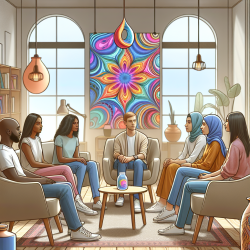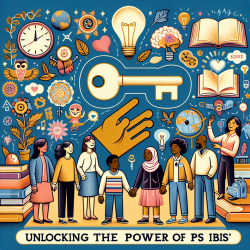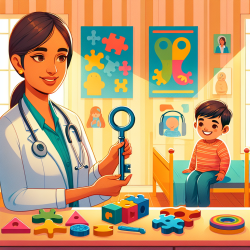In recent years, the potential of psychedelic substances to enhance therapeutic outcomes has gained significant attention. A compelling research article titled "Can psychedelics enhance group psychotherapy? A discussion on the therapeutic factors" delves into this fascinating topic. For practitioners dedicated to improving therapeutic skills and outcomes for children, this research provides a treasure trove of insights.
The Promise of Psychedelic-Assisted Group Psychotherapy (PAGP)
Psychedelic-assisted group psychotherapy (PAGP) combines the therapeutic benefits of group therapy with the profound psychological effects of psychedelics. The research highlights how PAGP can potentially enhance group connectedness, interpersonal learning, and prosocial behavior. Here’s a data-driven look at how these factors can be leveraged to improve therapeutic outcomes:
Key Findings
- Increased Group Connectedness
- Psychedelics like MDMA and psilocybin have been shown to enhance emotional empathy and social bonding.
- Data indicates that patients experience a greater sense of belonging and reduced feelings of isolation.
- Enhanced Interpersonal Learning
- The study reveals that psychedelics can amplify learning processes by promoting neuroplasticity, the brain's ability to adapt and reorganize.
- This can be particularly beneficial for children, who are in crucial stages of social and emotional development.
- Improved Prosocial Behavior
- Evidence suggests that psychedelics can increase prosocial behaviors such as empathy, altruism, and social cooperation.
- These changes can create a supportive group environment where children feel safe to express themselves and learn from others.
Practical Applications for Practitioners
For speech-language pathologists and other practitioners working with children, integrating the insights from this research can lead to more effective therapeutic interventions. Here are some practical steps:
- Training and Education: Ensure that therapists are well-trained in both psychedelic therapy and group dynamics. This dual expertise is crucial for managing the unique challenges and maximizing the benefits of PAGP.
- Creating a Safe Environment: Emphasize the importance of 'set and setting.' The mindset of the participants and the physical environment play critical roles in the therapeutic process.
- Continuous Monitoring: Regularly assess the emotional and psychological states of the participants to ensure their well-being and the effectiveness of the therapy.
Encouraging Further Research
While the initial findings are promising, more research is needed to fully understand the long-term effects and potential risks of PAGP. Practitioners are encouraged to stay informed about the latest developments in this field and consider participating in or supporting ongoing research efforts.
To read the original research paper, please follow this link: Can psychedelics enhance group psychotherapy? A discussion on the therapeutic factors.










